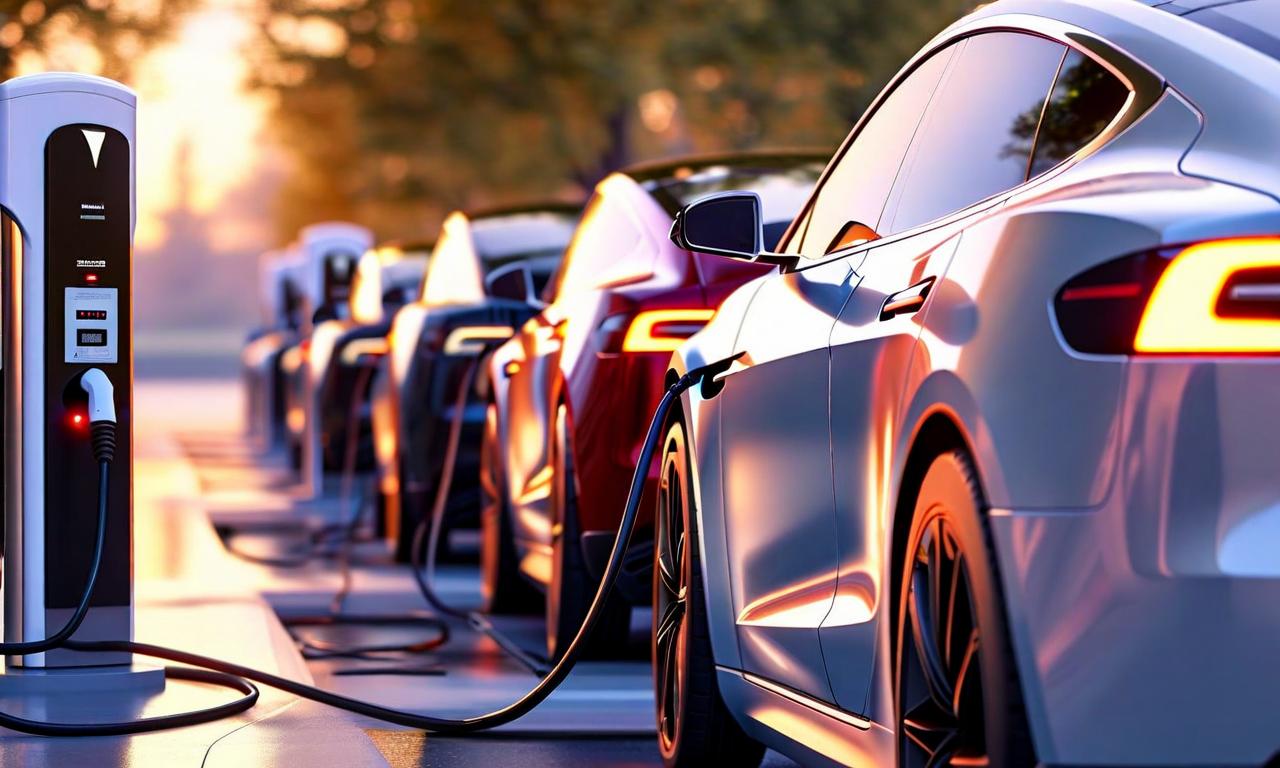US Electric Vehicle Sales Plummet as Federal Tax Credit Expires
The US electric vehicle market experienced a significant downturn in October following the expiration of federal tax credits worth up to $7,500. Ford reported a 25% year-over-year decline in all-electric sales, while Hyundai, Kia, Toyota, and Honda also saw steep declines. Ford's CEO suggested that the EV market share could fall to around 5% from the 10-12% recorded in September. However, hybrid sales have seen an increase, with Hyundai reporting a 41% year-over-year rise in hybrid sales. The sudden drop in EV sales highlights the significant role government incentives play in driving EV adoption.

*this image is generated using AI for illustrative purposes only.
The US electric vehicle (EV) market experienced a significant downturn in October following the expiration of federal tax credits worth up to $7,500 for EV buyers. This shift has led to a sharp decline in sales across multiple automakers, potentially reshaping the landscape of the EV market in the short term.
Key Findings
- Ford reported a 25% year-over-year decline in all-electric sales
- Hyundai and Kia saw steep declines after record September sales
- Toyota's BZ electric model sales dropped dramatically
- Honda's Prologue SUV sales declined by 81%
Detailed Sales Impact
| Manufacturer | Model | Sales Decline |
|---|---|---|
| Ford | Overall EV | 25.00% |
| Ford | Mustang Mach-E | 12.00% |
| Ford | F-150 Lightning | 17.00% |
| Hyundai | Ioniq 5 | 63.00% |
| Hyundai | Ioniq 6 | 52.00% |
| Kia | EV6 | 71.00% |
| Kia | EV9 | 66.00% |
| Toyota | BZ | 98.70% |
| Honda | Prologue SUV | 81.00% |
Market Implications
The expiration of the federal tax credit has had a profound impact on EV sales across the board. Ford CEO Jim Farley suggested that the EV market share could fall to around 5% from the 10-12% recorded in September. This projection comes despite the US EV sales reaching a record 438,487 units in the third quarter, up 40.7% from the previous quarter.
Bright Spot: Hybrid Sales
While pure EV sales have taken a hit, there's a silver lining for some manufacturers. Hyundai, for instance, reported a 41% year-over-year increase in hybrid sales. This boost helped the company's total electrified sales increase by 8%, despite the 57% drop in pure EV sales.
Industry Outlook
Industry analysts described the decline as expected, given the expiration of the federal tax credit. The sudden drop in sales highlights the significant role government incentives play in driving EV adoption. As the market adjusts to this new reality, it remains to be seen how automakers will adapt their strategies to maintain growth in the EV sector.
The dramatic shift in EV sales underscores the volatility of the emerging electric vehicle market and the impact of policy changes on consumer behavior. As the industry navigates these challenges, the coming months will be crucial in determining the long-term trajectory of EV adoption in the United States.


























